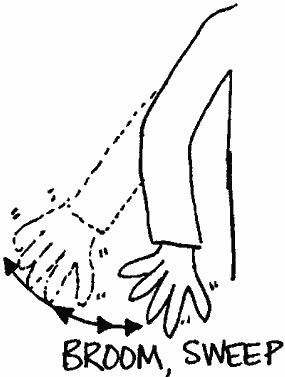Scientific Misconduct Blog Memory Hole: Events of October 29th

9 years ago today: Scientific Misconduct, INSERM and the case of Bernard Bihain
On 29 October 1998 it was announced in Nature that the French government had quietly dropped plans to investigate research misconduct at INSERM (Nature 395, 29 Oct 1998,829). This case has a strong smell of whitewash about it.- The matter concerned the activities of the INSERM Laboratory of Nutrition Lipo-protein Metabolism and Atherosclerosis at the University of Rennes and its director Bernard Bihain. The science involved cloning of a "lipolysis stimulated receptor".
- Much money was involved. INSERM and the French biotechnology company Genset had jointly applied for a patent as part of plans costing US$10 million to build a new laboratory near Rennes. INSERM's director general, Claude Griscelli, called it an example of the "policy of industrial partnerships that INSERM wishes to reinforce".
- Twenty "whistleblowers" raised concerns about "an alteration of the truth in the translation of the results of experiments … to make them coincide with a hypothesis". An initial inquiry report and underlying evidence was never made available, but could apparently be summarized as "we have not excluded scientific fraud". The report apparently also stated that some of the laboratory's work poses "many problems" and an "an in-depth analysis carried out by international experts in the field is absolutely necessary." Nothing happened and the whistleblowers then complained.
- In May 1998 Daniel Nahon (director-general of the Ministry of National Education, Research and Technology) announced that four international experts would carry out an inquiry into the laboratory and its director Bernard Bihain.
- The laboratory itself was then closed by INSERM in August after Bihain asked to be discharged from his duties. Scientists expressed concerns that the closure might be used to allow a whitewash.
- That is exactly what happened: According to Nature in October 1998 the ministry abandoned the inquiry. "We stopped everything" said Vincent Courtillot, principal adviser to the science minister. "The affair is over, the guy is in America, the lab does not exist, so we are not going to make an inquiry committee work on something where there are no consequences."
- Further criticism followed, including from the SNTRS-CGT, a trade union representing INSERM scientists. INSERM was said to be creating an "office of scientific integrity". Claude Griscelli, the agency's director-general, says the unit's remit will be to investigate "promptly and effectively" all allegations (where have we heard that before?).
- Bihain, the accused scientist went on to become vice-president of genomics at Genset, and chief scientific officer of the US–French company Valigen.
- Then in 2002 Nature announced that "Bernard Bihain, the obesity researcher who left French research in 1998 amid allegations of scientific misconduct, is to take up a post with his former employers INSERM". Christian Brechot, director-general of INSERM stated “The opinion was that although some of his hypotheses have not been confirmed, his contribution was of value”.
- Further criticism followed, so something needed to be done. In 2003, after he had been reappointed the final clouding-over came. A new ruling "by the Tribunal de Grande Instance in Rennes, concludes a separate judicial investigation of some aspects of the affair." "In reaching its decision on the charges, the tribunal was only permitted by law to consider certain limited classes of documents. This is because the misdemeanour ‘faux et usage de faux’ (‘forgery and use of forgeries’) applies only to a “document or other medium of expression of which the object is, or effect may be, to provide evidence of a right or of a situation carrying legal consequences”.
Most importantly we are not allowed to judge based on evidence, as is expected in science itself. Nothing is public. The reports and underlying evidence are hidden. Bihain might wish to declare himself "cleared" by his friends and peers - but if he so wishes, he should place all the evidence against himself and his rebuttal into the public domain. That is the way of proper open science, and the usual behavior of scientists who are truly innocent (as Bihain may well be).
The French minister is correct, "there are no consequences". None at all. Science and the public are the losers in all this.
Sources:
Earlier|Later|Main Page
1 comment:
It's really a visual gag, but imagine Nelson, with his telescope to his patched eye, declaring
"I see no ships..."
Matt
Post a Comment